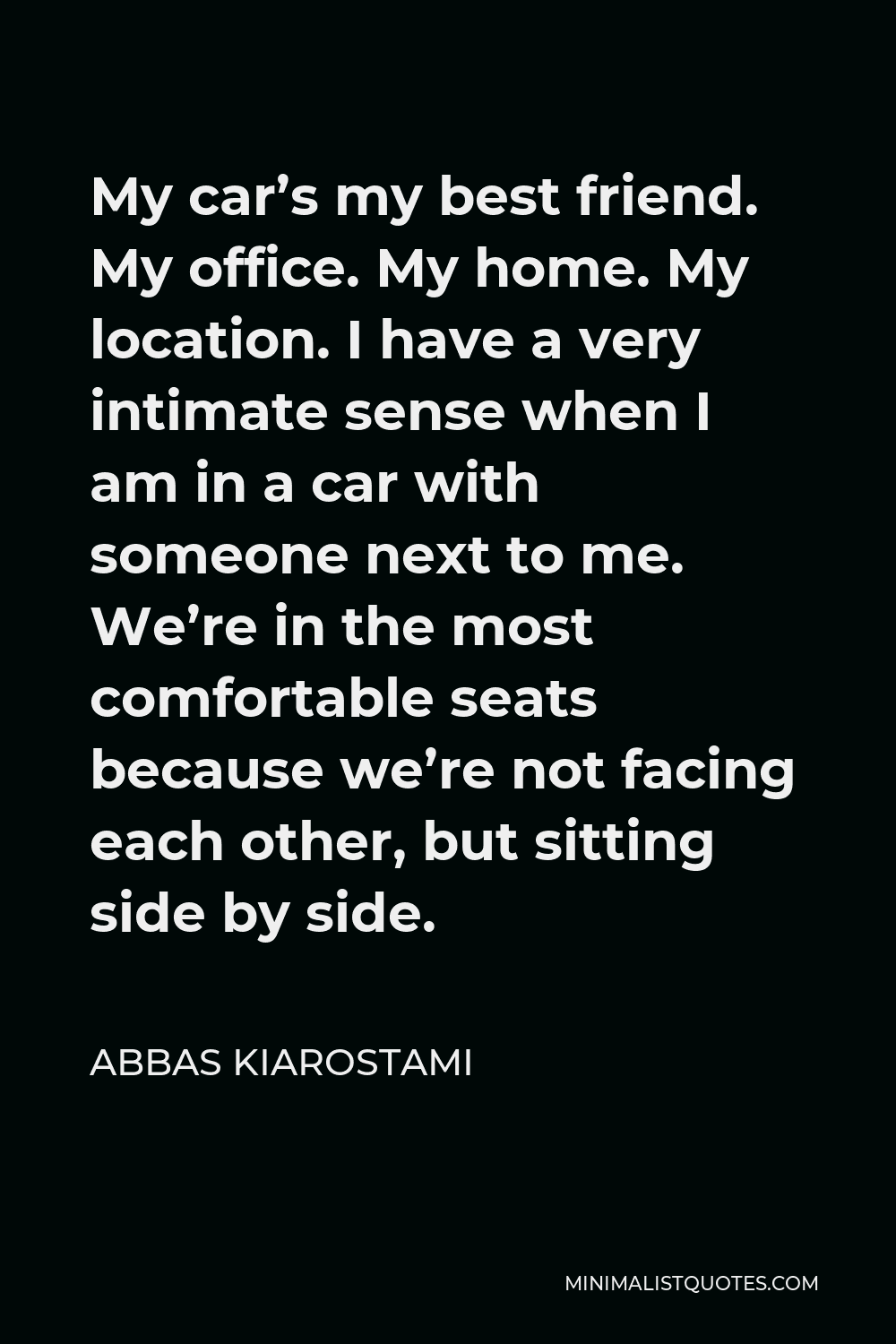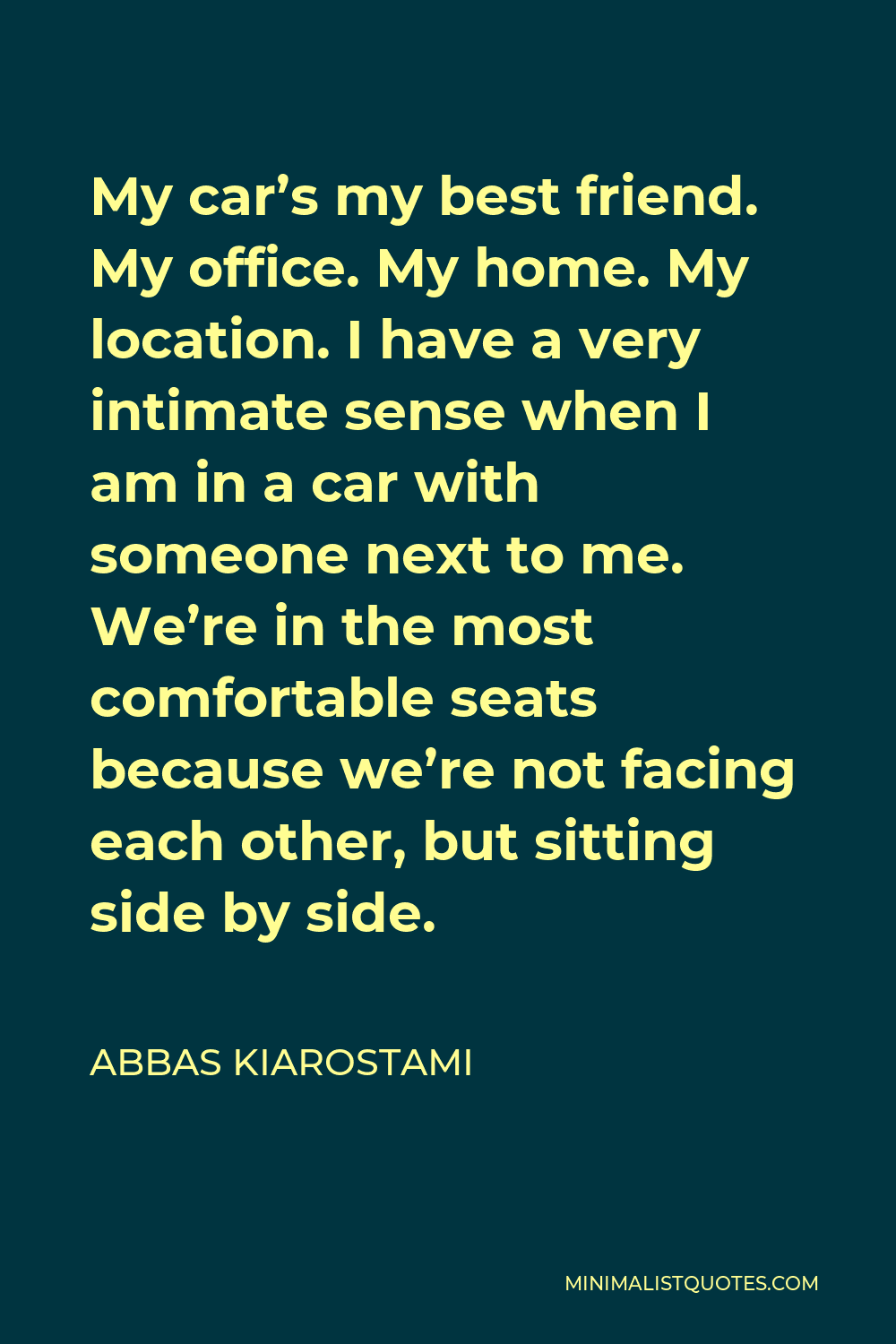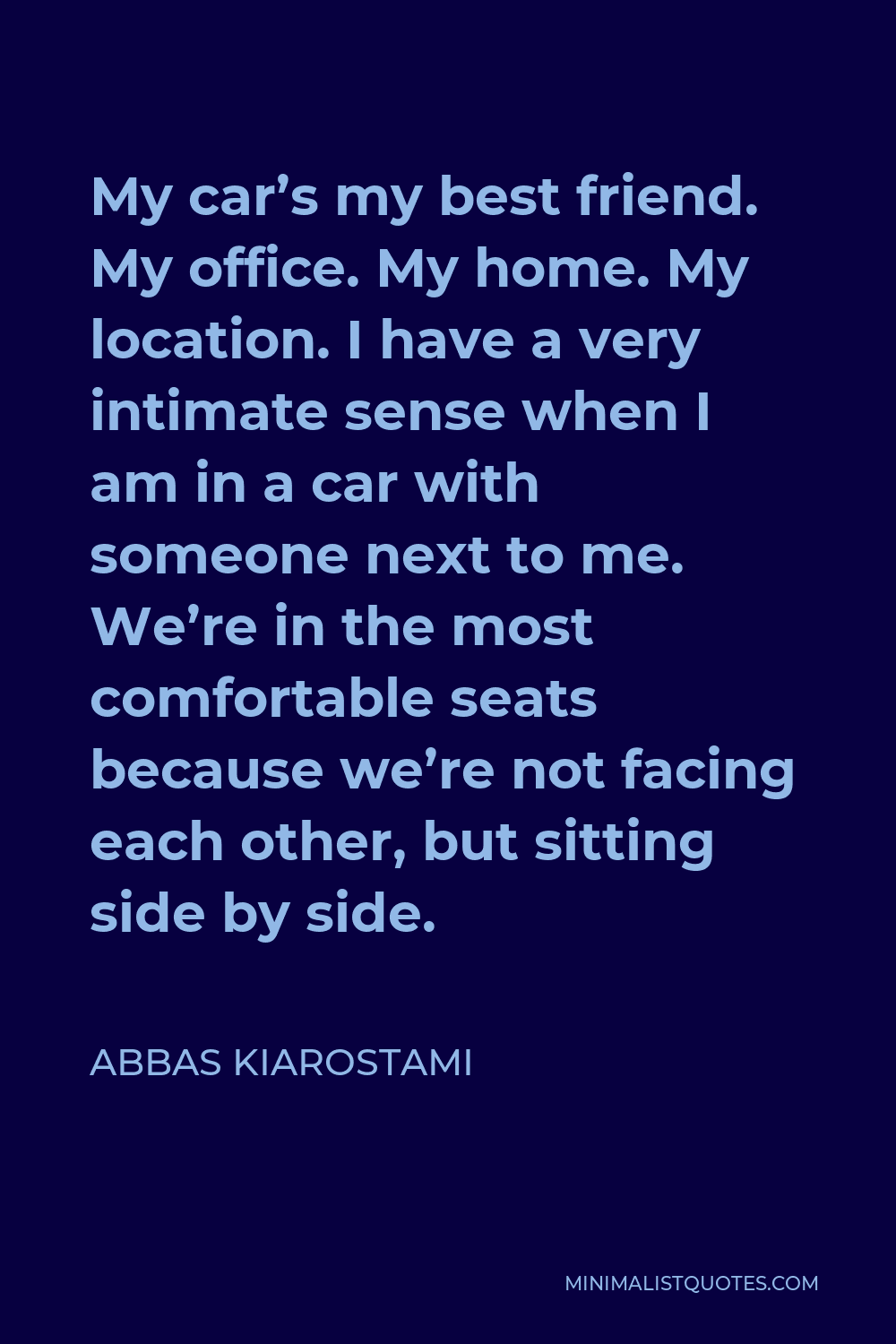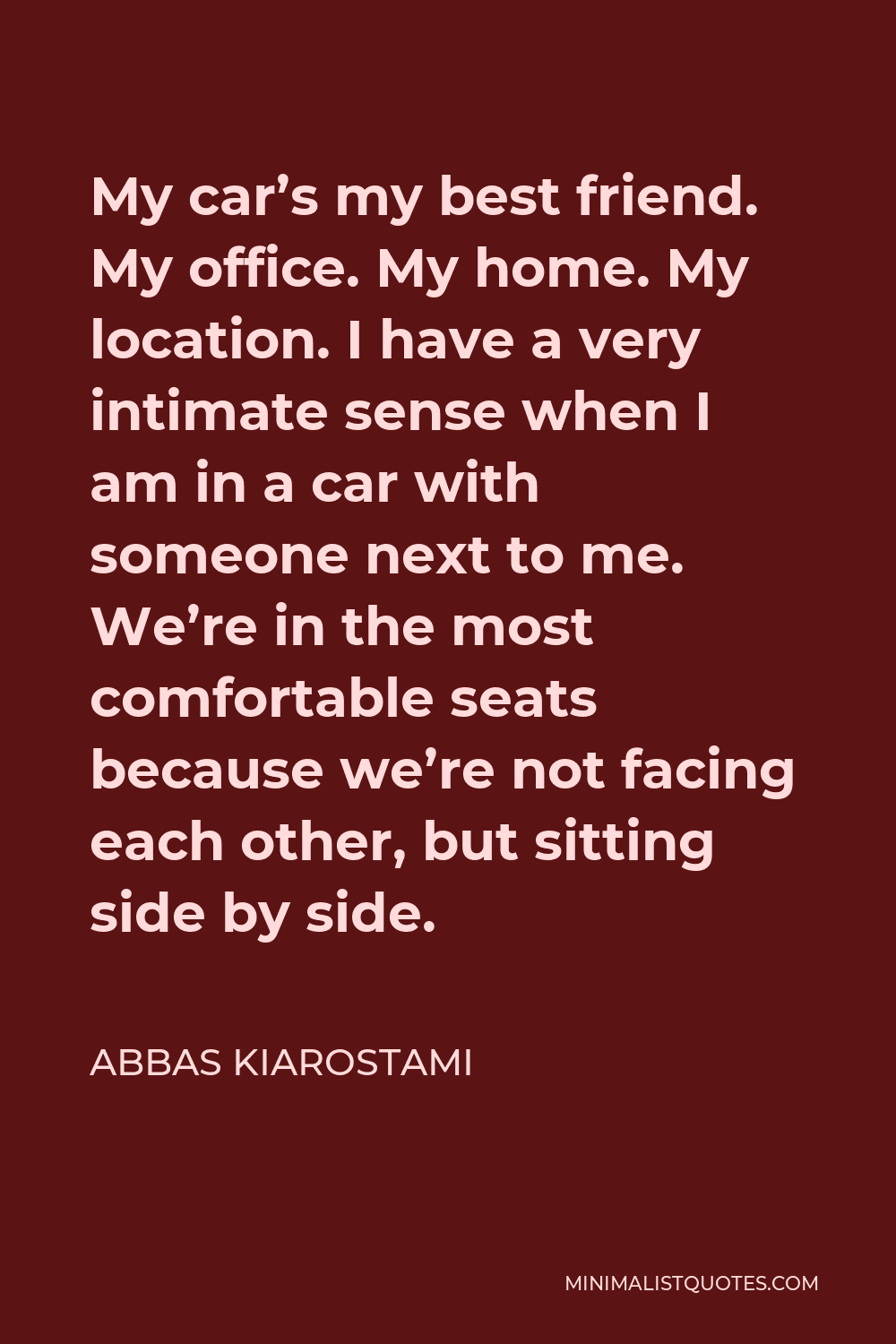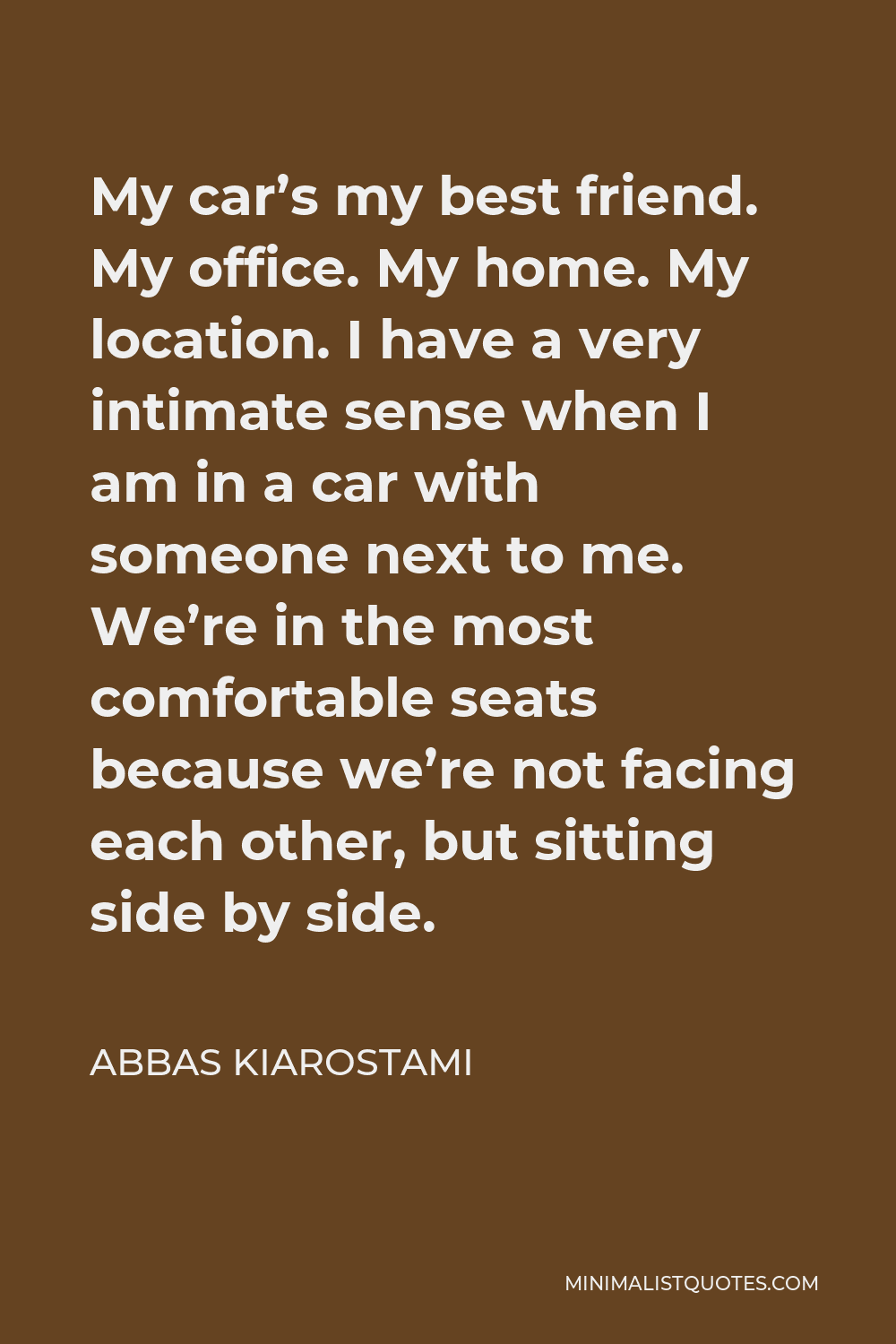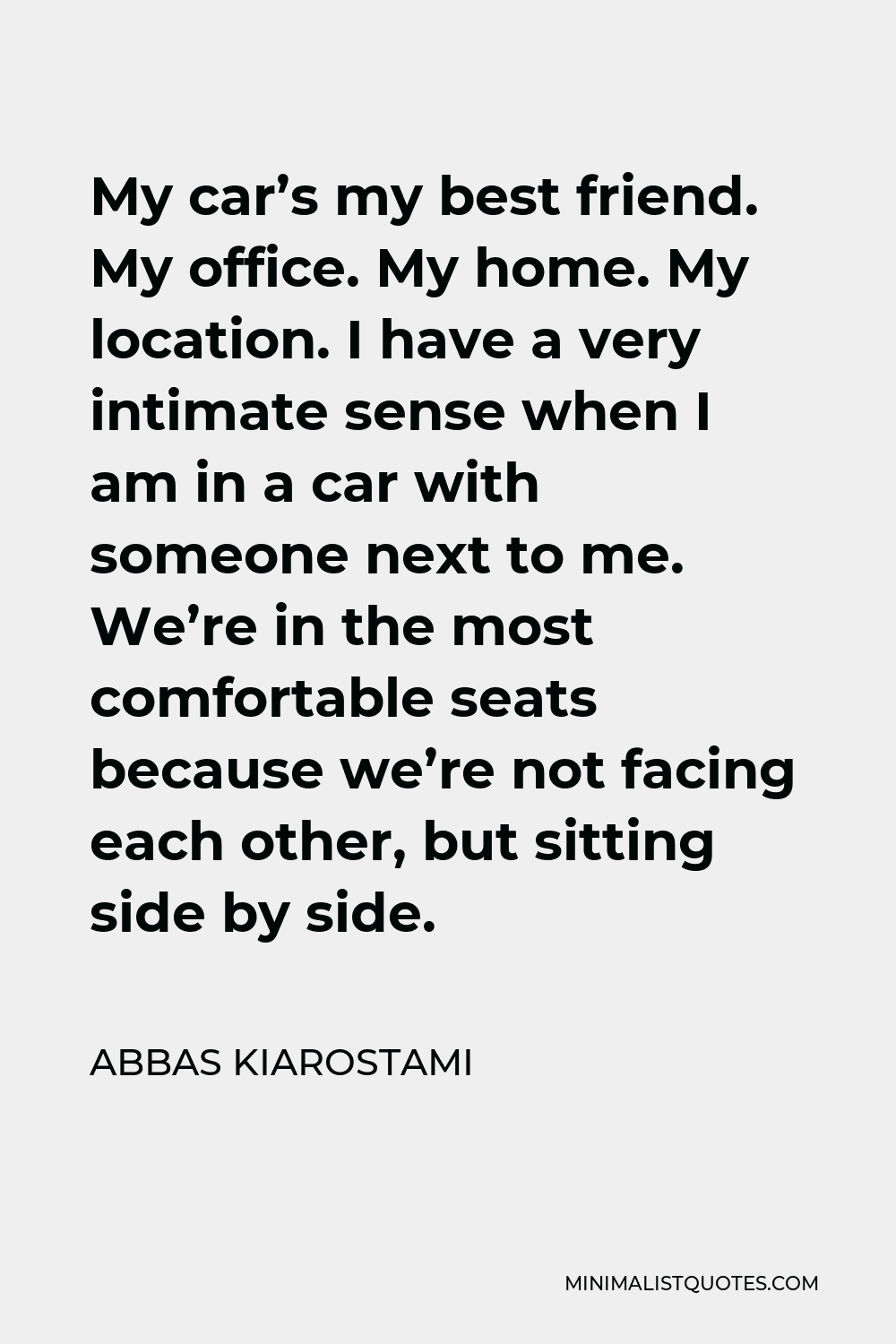It’s true that the best way of knowing yourself is to put yourself into different situations.
ABBAS KIAROSTAMIMy car’s my best friend. My office. My home. My location. I have a very intimate sense when I am in a car with someone next to me. We’re in the most comfortable seats because we’re not facing each other, but sitting side by side.
More Abbas Kiarostami Quotes
-





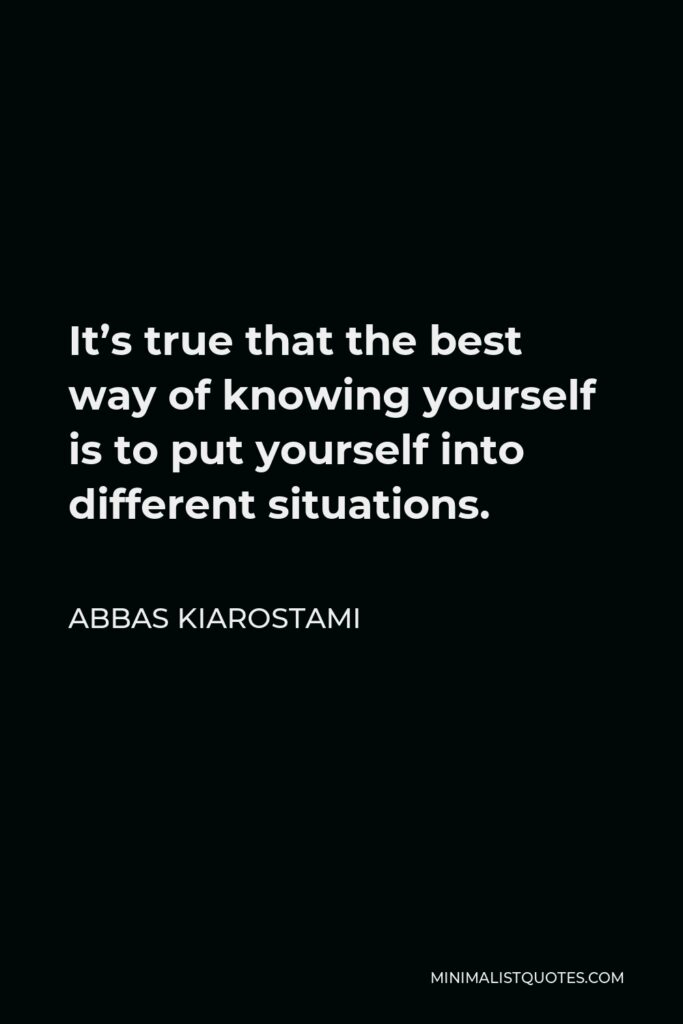

-





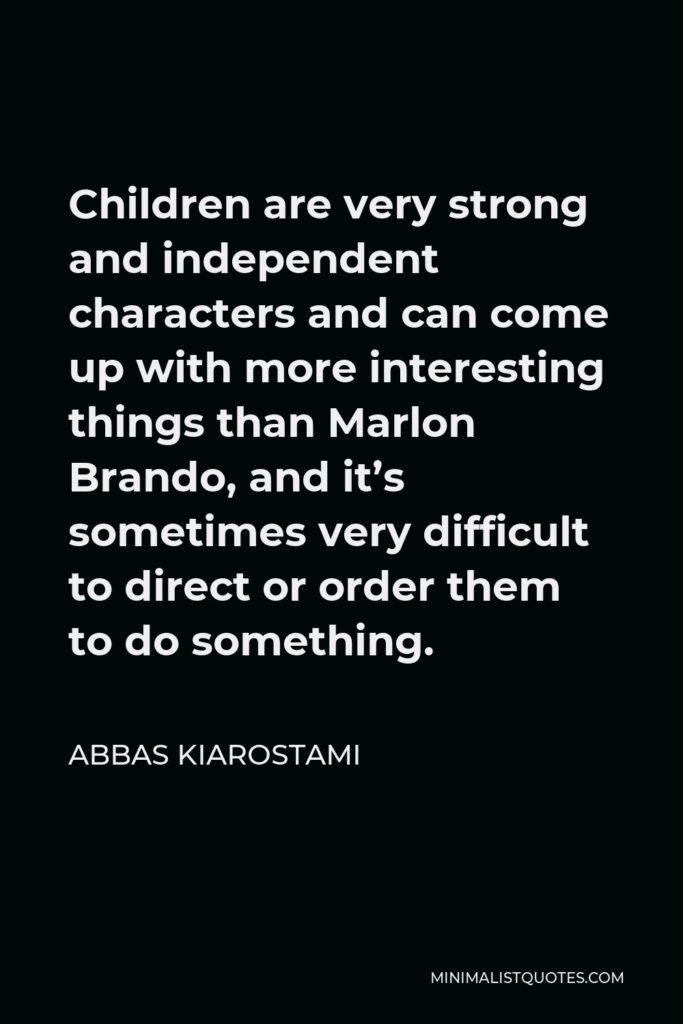

Children are very strong and independent characters and can come up with more interesting things than Marlon Brando, and it’s sometimes very difficult to direct or order them to do something.
ABBAS KIAROSTAMI -





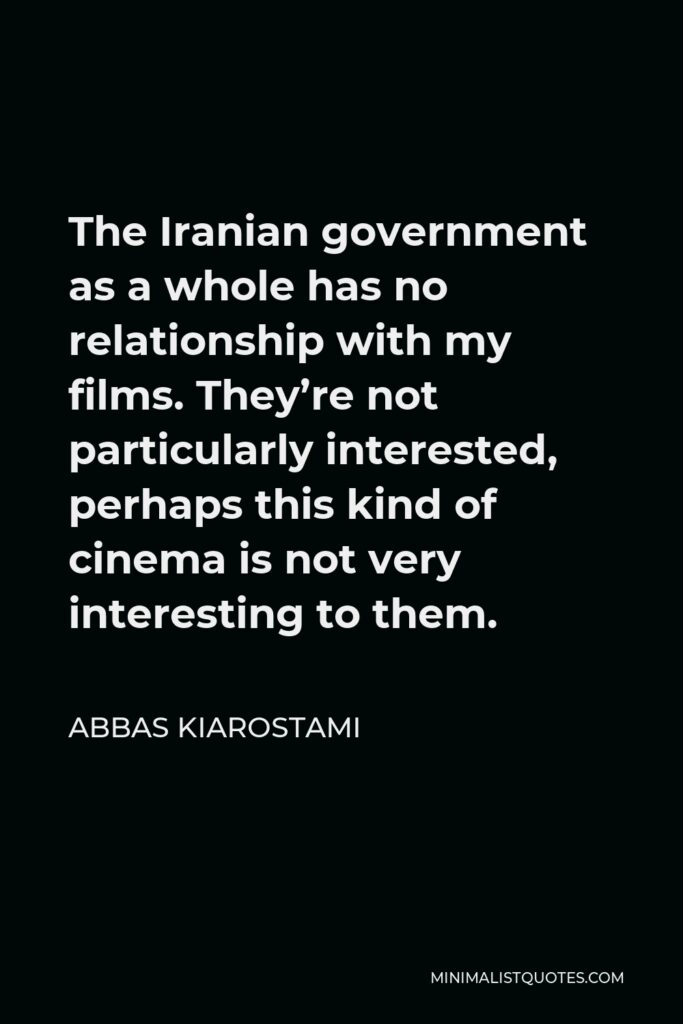

The Iranian government as a whole has no relationship with my films. They’re not particularly interested, perhaps this kind of cinema is not very interesting to them.
ABBAS KIAROSTAMI -





![Abbas Kiarostami Quote - I do believe in [Robert] Bresson’s method of creation through omission, not through addition.](https://minimalistquotes.com/wp-content/uploads/2022/04/i-do-believe-in-robert-bressons-method-of-creation-683x1024.jpg)

I do believe in [Robert] Bresson’s method of creation through omission, not through addition.
ABBAS KIAROSTAMI -





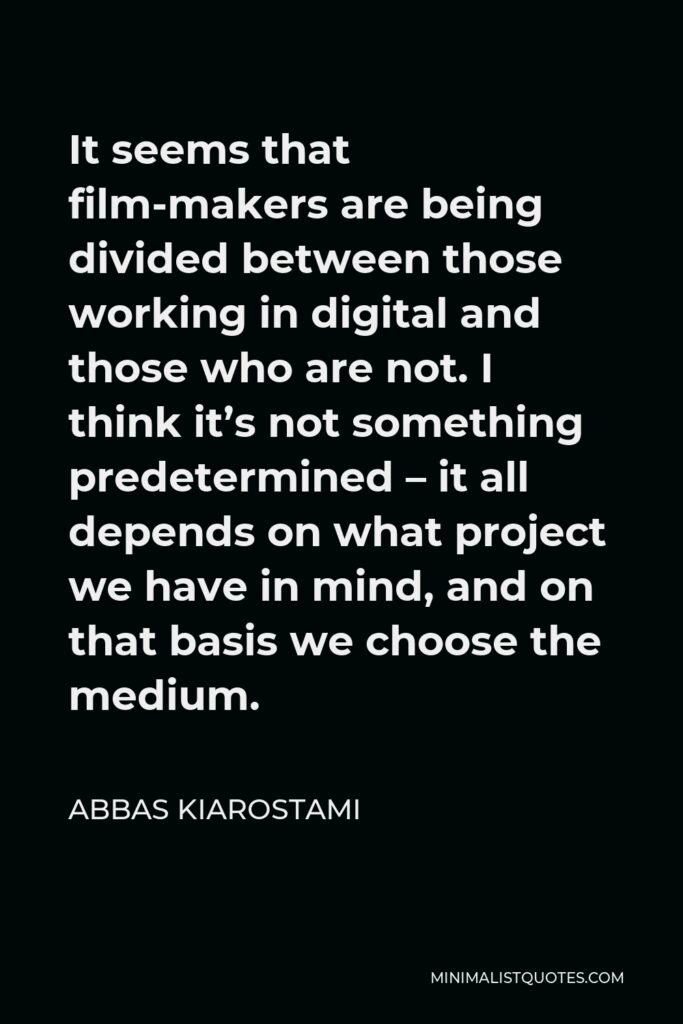

It seems that film-makers are being divided between those working in digital and those who are not. I think it’s not something predetermined – it all depends on what project we have in mind, and on that basis we choose the medium.
ABBAS KIAROSTAMI -





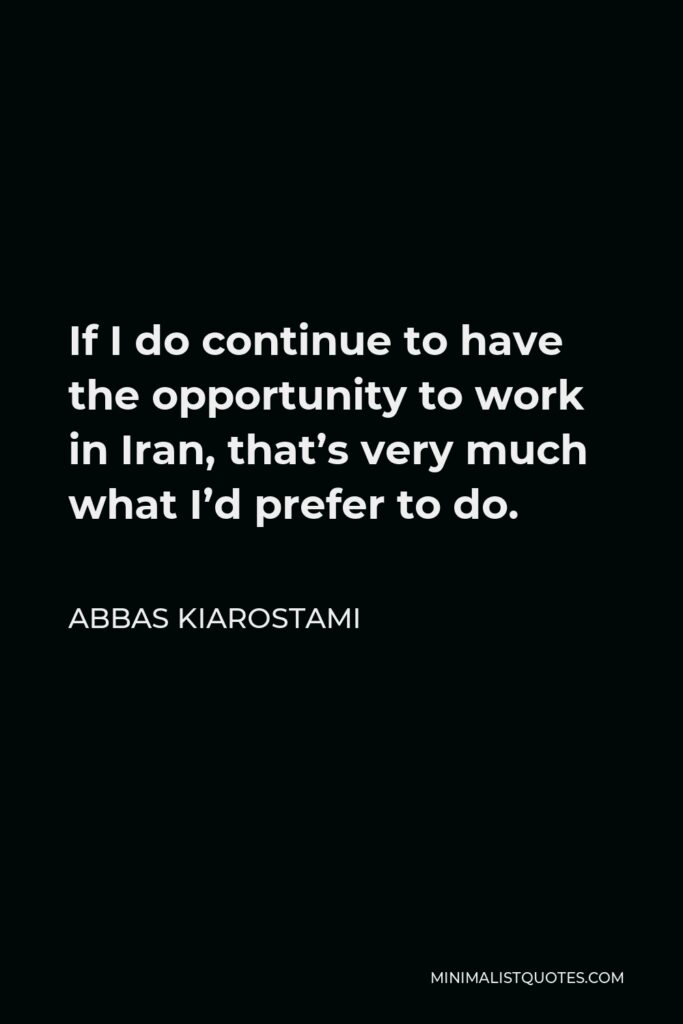

If I do continue to have the opportunity to work in Iran, that’s very much what I’d prefer to do.
ABBAS KIAROSTAMI -





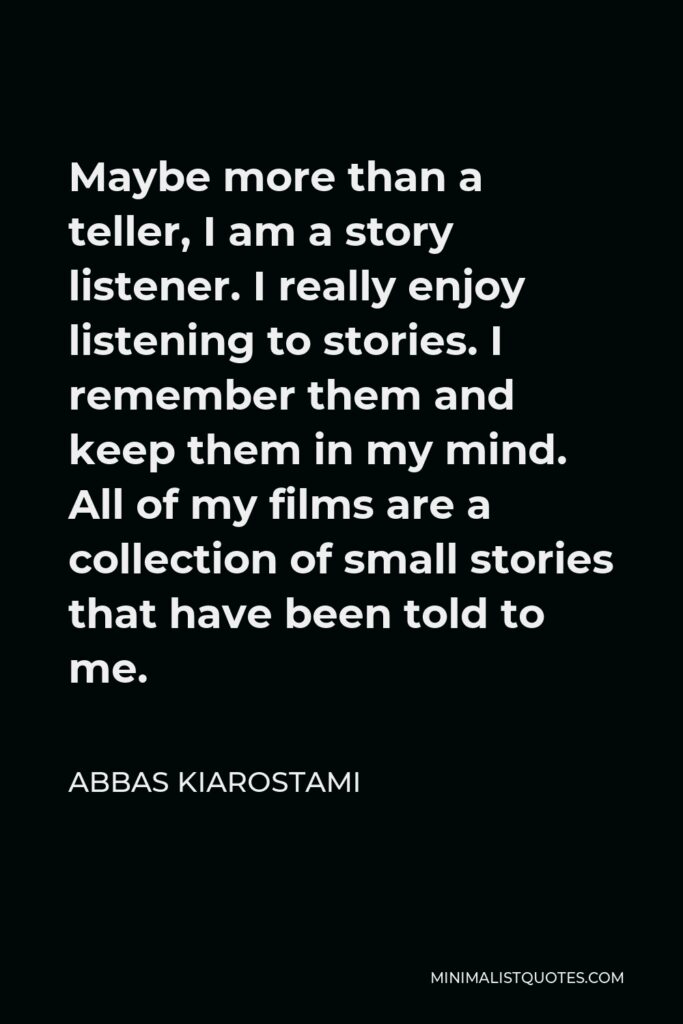

Maybe more than a teller, I am a story listener. I really enjoy listening to stories. I remember them and keep them in my mind. All of my films are a collection of small stories that have been told to me.
ABBAS KIAROSTAMI -





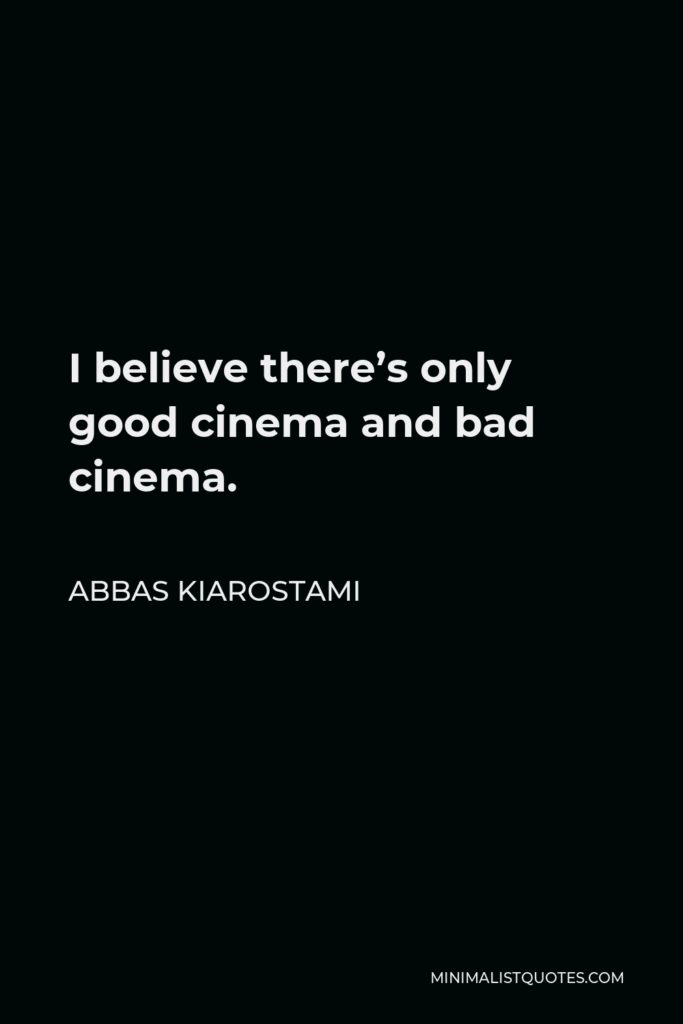

I believe there’s only good cinema and bad cinema.
ABBAS KIAROSTAMI -





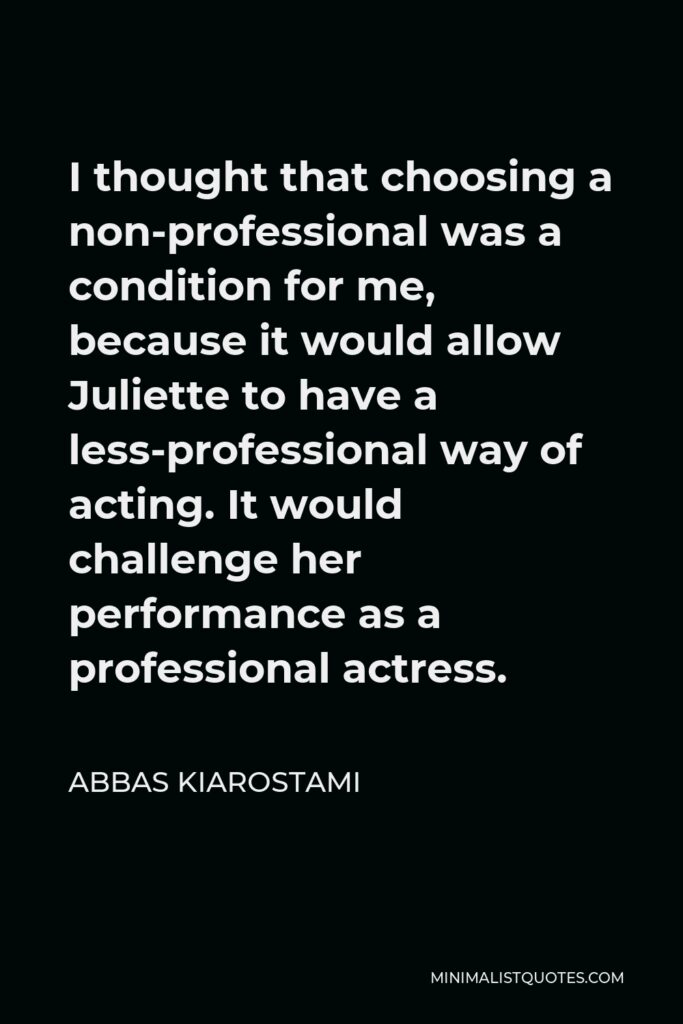

I thought that choosing a non-professional was a condition for me, because it would allow Juliette to have a less-professional way of acting. It would challenge her performance as a professional actress.
ABBAS KIAROSTAMI -





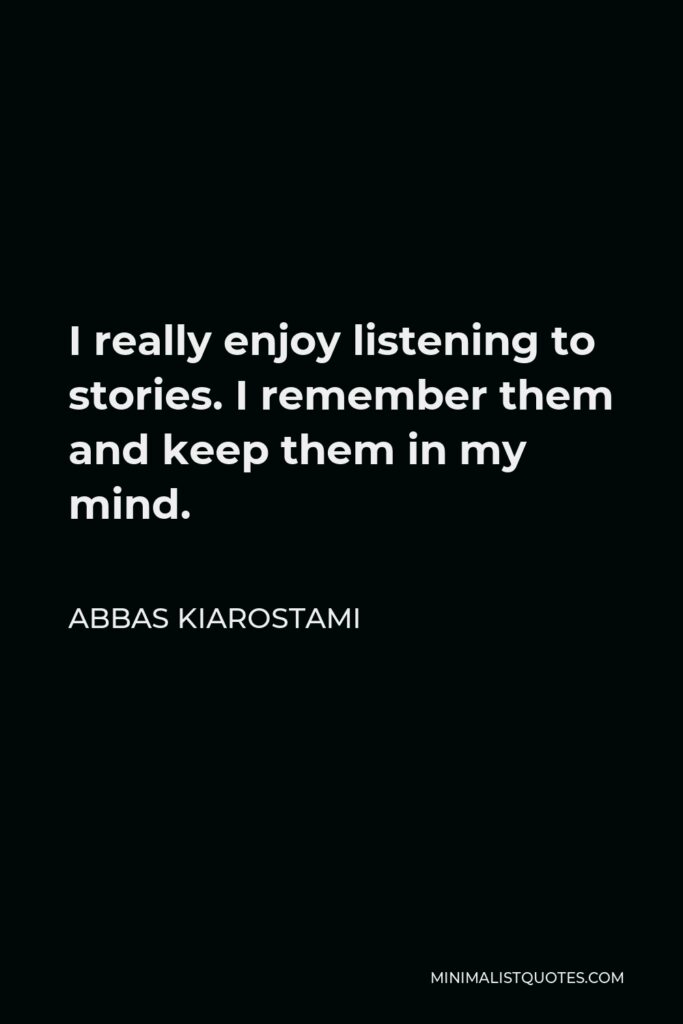

I really enjoy listening to stories. I remember them and keep them in my mind.
ABBAS KIAROSTAMI -





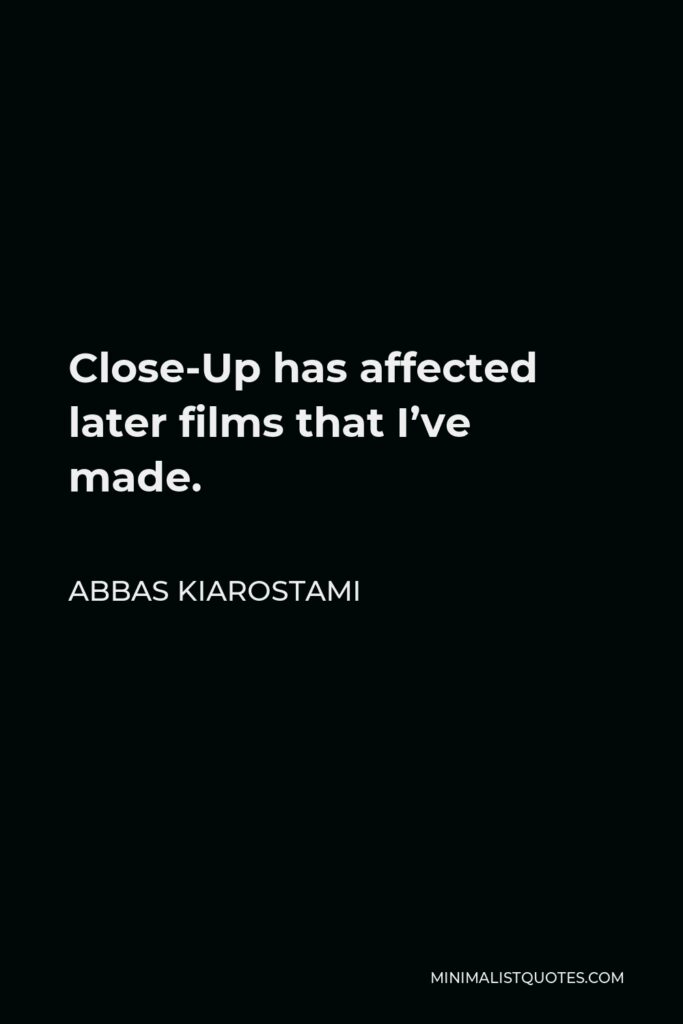

Close-Up has affected later films that I’ve made.
ABBAS KIAROSTAMI -





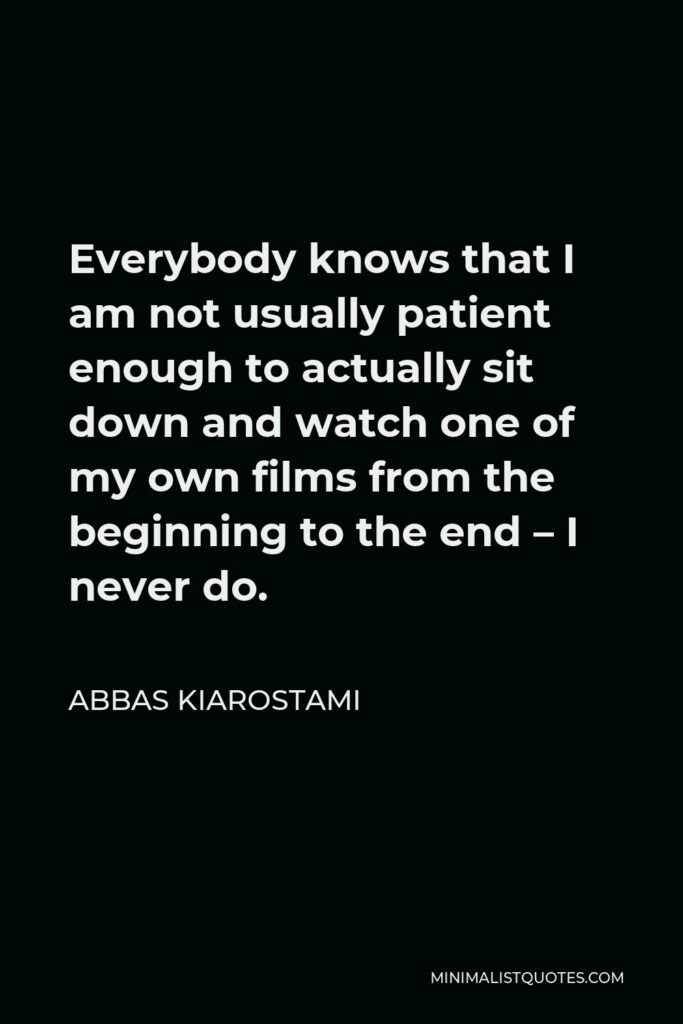

Everybody knows that I am not usually patient enough to actually sit down and watch one of my own films from the beginning to the end – I never do.
ABBAS KIAROSTAMI -





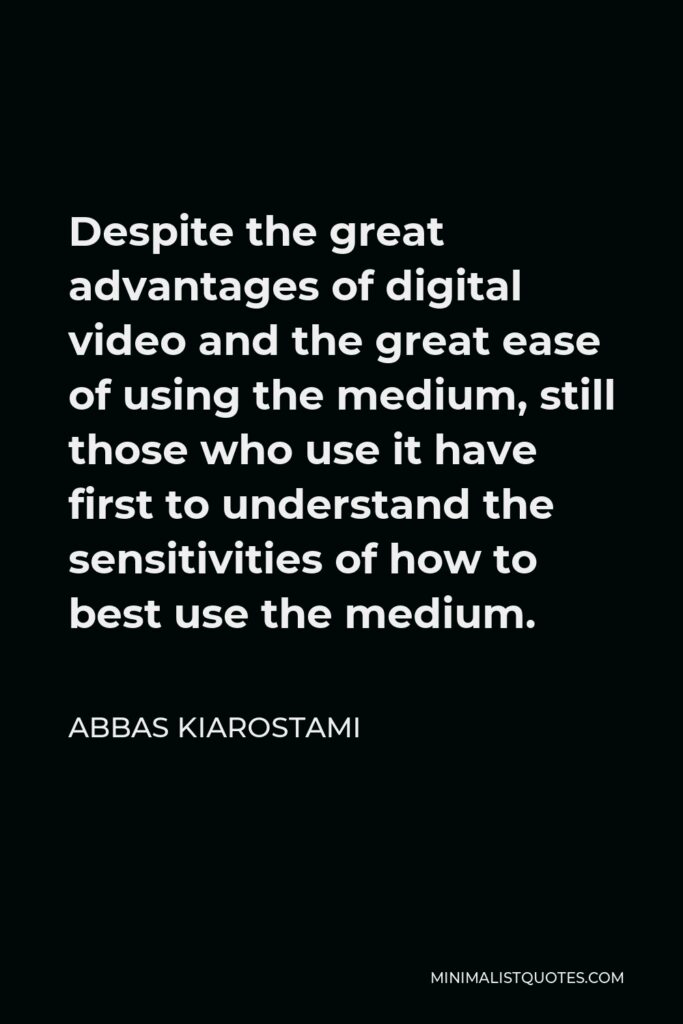

Despite the great advantages of digital video and the great ease of using the medium, still those who use it have first to understand the sensitivities of how to best use the medium.
ABBAS KIAROSTAMI -





![Abbas Kiarostami Quote - The film [Close Up] made itself, to a large extent. The characters involved were very real, I wasn’t directing the actors so much as being directed by them. So it was a very particular film.](https://minimalistquotes.com/wp-content/uploads/2022/04/the-film-close-up-made-itself-to-a-large-extent-th-683x1024.jpg)

The film [Close Up] made itself, to a large extent. The characters involved were very real, I wasn’t directing the actors so much as being directed by them. So it was a very particular film.
ABBAS KIAROSTAMI -





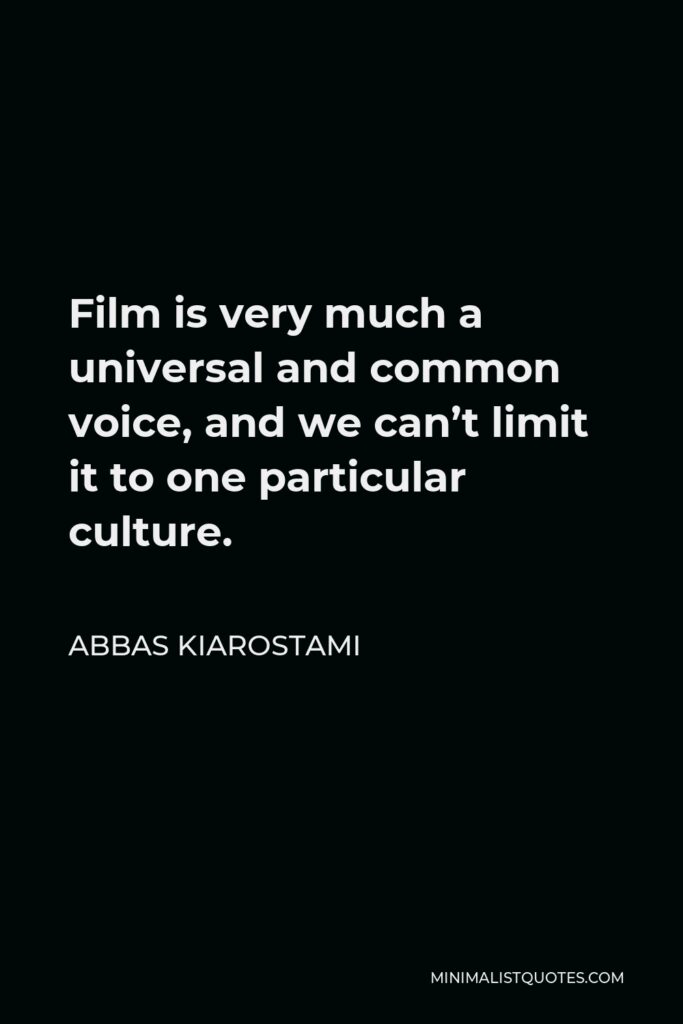

Film is very much a universal and common voice, and we can’t limit it to one particular culture.
ABBAS KIAROSTAMI -





![Abbas Kiarostami Quote - This [the earthquake] was a very big influence on me, and the issue of life and death from then on does recur in my films.](https://minimalistquotes.com/wp-content/uploads/2022/04/this-the-earthquake-was-a-very-big-influence-on-me-683x1024.jpg)

This [the earthquake] was a very big influence on me, and the issue of life and death from then on does recur in my films.
ABBAS KIAROSTAMI
